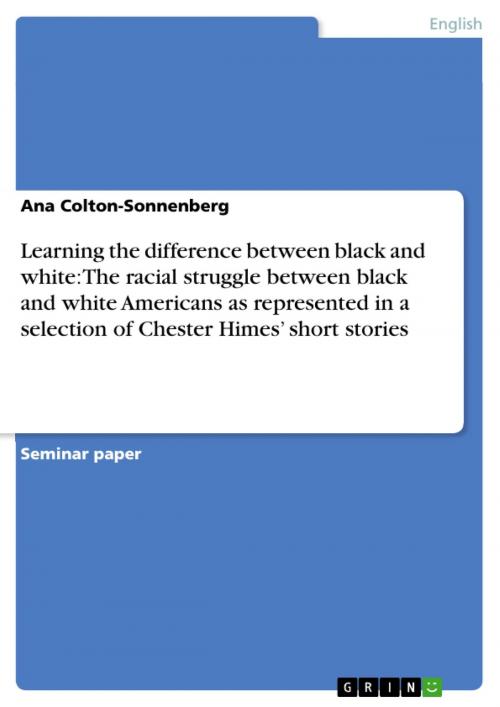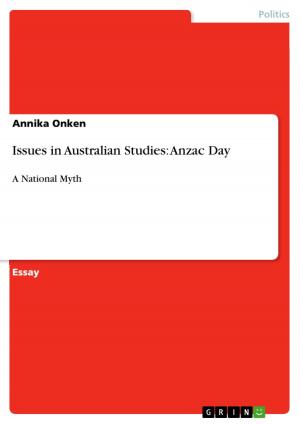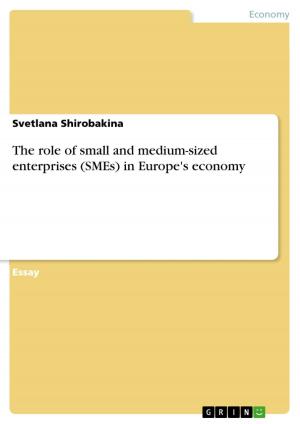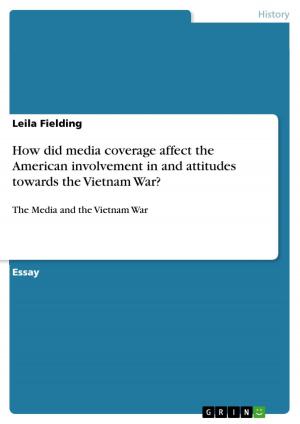Learning the difference between black and white: The racial struggle between black and white Americans as represented in a selection of Chester Himes' short stories
Nonfiction, Entertainment, Drama, Anthologies| Author: | Ana Colton-Sonnenberg | ISBN: | 9783638830454 |
| Publisher: | GRIN Publishing | Publication: | July 25, 2007 |
| Imprint: | GRIN Publishing | Language: | English |
| Author: | Ana Colton-Sonnenberg |
| ISBN: | 9783638830454 |
| Publisher: | GRIN Publishing |
| Publication: | July 25, 2007 |
| Imprint: | GRIN Publishing |
| Language: | English |
Seminar paper from the year 2007 in the subject American Studies - Literature, grade: 1,3, University of Paderborn, 31 entries in the bibliography, language: English, abstract: Despite the ferocious anti-racism of his early works, Himes is best known and appreciated for his detective stories. Whereas these were very successful especially in Europe, the bitterness of his first books did not find approval at first. His short stories, however, were popular enough to sell mostly to black newspapers and magazines but also to Esquire. The stories treated in this paper were published posthumously in the anthology The Collected Stories of Chester Himes. These short stories, written between 1933 and 1978, deal with themes ranging from women and poverty to life in prison, war, and, above all, racism. Some of them could be considered semi-autobiographical. They are Himes' way of dealing with his situation as a black American in a white segregationist society and reflect his anger and hopelessness. This paper will concentrate on two short stories treating the subject of racism against African Americans which is omnipresent in Himes' works. Whereas in 'All God's Chillun Got Pride' Himes emphasizes that the inferiority of blacks is not a natural phenomenon but a tradition forcibly imposed on them by the whites, 'Rufus Jones' is a bitter-sweet humorous attempt to unveil the absurdity of racial stereotypes. To understand the bitterness and cynicism of Himes' short stories it is necessary both to recall the historical developments that influenced them and to look at the author's biography. Therefore, I will first introduce a short historical and biographical overview, to then focus on the selected short stories and finally sum up the outcome.
Seminar paper from the year 2007 in the subject American Studies - Literature, grade: 1,3, University of Paderborn, 31 entries in the bibliography, language: English, abstract: Despite the ferocious anti-racism of his early works, Himes is best known and appreciated for his detective stories. Whereas these were very successful especially in Europe, the bitterness of his first books did not find approval at first. His short stories, however, were popular enough to sell mostly to black newspapers and magazines but also to Esquire. The stories treated in this paper were published posthumously in the anthology The Collected Stories of Chester Himes. These short stories, written between 1933 and 1978, deal with themes ranging from women and poverty to life in prison, war, and, above all, racism. Some of them could be considered semi-autobiographical. They are Himes' way of dealing with his situation as a black American in a white segregationist society and reflect his anger and hopelessness. This paper will concentrate on two short stories treating the subject of racism against African Americans which is omnipresent in Himes' works. Whereas in 'All God's Chillun Got Pride' Himes emphasizes that the inferiority of blacks is not a natural phenomenon but a tradition forcibly imposed on them by the whites, 'Rufus Jones' is a bitter-sweet humorous attempt to unveil the absurdity of racial stereotypes. To understand the bitterness and cynicism of Himes' short stories it is necessary both to recall the historical developments that influenced them and to look at the author's biography. Therefore, I will first introduce a short historical and biographical overview, to then focus on the selected short stories and finally sum up the outcome.















